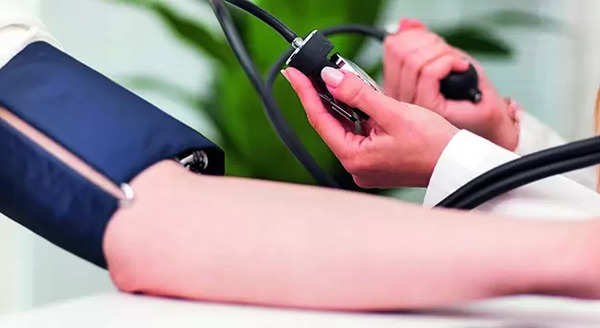High blood pressure more commonly known as a silent killer. It doesn’t just harm our heart—it could also impact our brain. A study published in Neurology reveals that neglecting hypertension can increase the risk of developing cognitive issues like dementia. But there’s hope—simple lifestyle changes and proper blood pressure management can greatly reduce these risks. Here’s what the study findings say and learn how we can protect both our heart and mind.
What is the connection between blood pressure and dementia?
Research conducted by Wake Forest University focused on 9,361 individuals aged 50 and above. Participants were divided into two groups—those receiving intensive blood pressure treatment (keeping systolic blood pressure below 120 mm Hg) and those under standard treatment (below 140 mm Hg).

Over seven years of follow-up, researchers found that the intensive treatment group had a notably lower risk of developing mild cognitive impairment (MCI) or dementia. This suggests that managing blood pressure aggressively can prevent the cognitive decline that often leads to dementia.
As Dr Jeff Williamson, one of the lead authors, explained, “Lowering your blood pressure to more aggressive targets can improve the quality of life and extend active life for individuals with hypertension.”
Why high blood pressure affects our brain?
Hypertension impacts blood vessels throughout the body, including those in the brain. Over time, poorly managed high blood pressure can damage these vessels, reducing blood flow and oxygen supply to brain cells. This increases the risk of vascular dementia, a condition caused by reduced blood flow to the brain, and can also contribute to Alzheimer’s disease.
Ignoring high blood pressure can cause long-term damage to brain health, even if symptoms don’t show up immediately.

How to lower our risk
Here are some actionable tips to manage blood pressure and protect your brain:
- Eat more fruits, vegetables, whole grains, and lean proteins.
- Reduce salt intake to keep blood pressure in check.
- Engage in regular exercise like brisk walking, cycling, or yoga. Aim for at least 30 minutes daily.
- Excessive alcohol and smoking are harmful to both your heart and brain.
- Regularly check your blood pressure to catch and address issues early.
- Practice relaxation techniques like meditation or deep breathing to reduce stress levels.
Can the damage be reversed?
The good news is that the brain has the ability to heal, especially when issues are caught early. Lowering blood pressure can reduce the risk of cognitive decline, even for those already showing mild symptoms.








